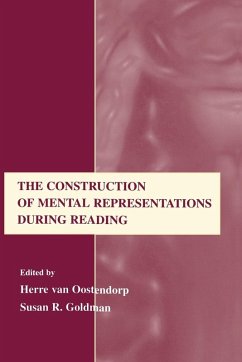
Reading and the Mental Lexicon
Versandkostenfrei!
Versandfertig in 1-2 Wochen
70,99 €
inkl. MwSt.
Weitere Ausgaben:

PAYBACK Punkte
35 °P sammeln!
This text outlines the major models of lexical processing that have been put forward in the literature, and how they explain the basic empirical findings that have been reported.














